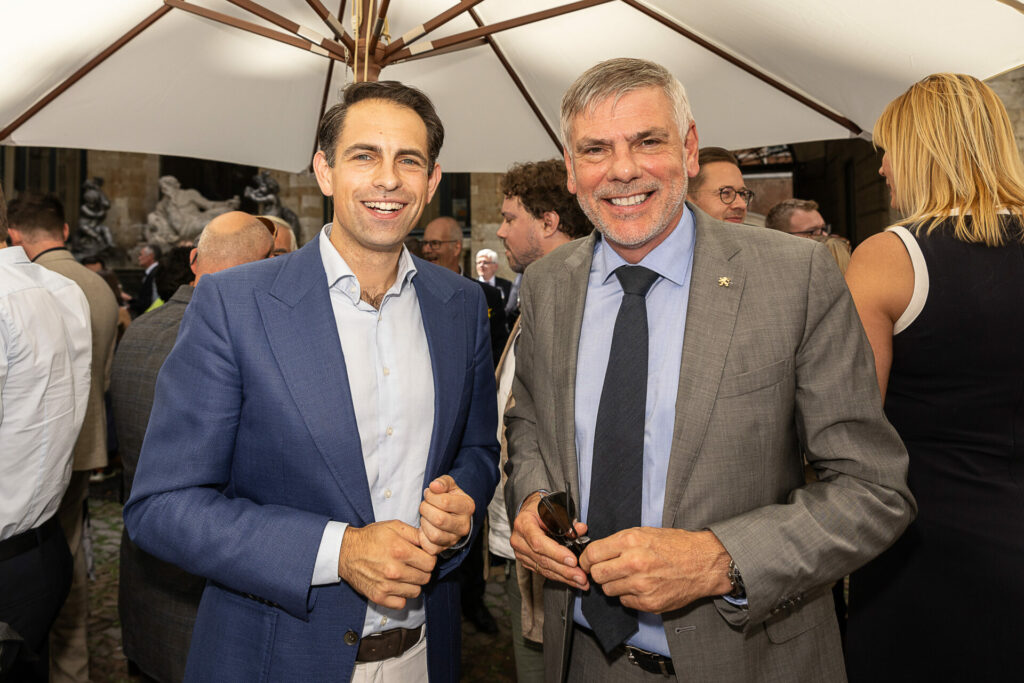Revelations last week about corruption and espionage among members of the Vlaams Belang political party have led Bart De Wever – President of the leading N-VA party – to rule out an alliance with the far-right Flemish party.
Speaking on Flemish television on Friday, De Wever was unequivocal in his determination "not to join a Flemish government with Vlaams Belang, amid concerns over China’s espionage." With both parties on the right of the political spectrum, a partnership is frequently raised as a way for the more extreme Vlaams Belang to rise to power.
De Wever qualified his pledge not to enter into such an alliance on the leaders of CD&V and Open VLD parties refraining from creating a federal majority in which Flanders would be a minority political entity. N-VA has often stated its aim to secure greater autonomy for Flanders.
The scandal emerged last week when an international media investigation showed that a former member of Vlaams Belang was in the pay of Chinese agents in return for political interventions in China's favour. The affair took on a new dimension this week as Steven Creyelman – a serving Vlaams Belang MP and brother of Frank Creyelman, who was in direct contact with the Chinese spy – was also linked closely to the case.
The revelation has led to sharp scrutiny of Belgium's laws on espionage, some of which have not been updated since 1897 and are hopelessly equipped to deal with the realities of modern infiltration and networks of influence. Belgium's Justice Minister Paul Van Tigchelt has issued calls for immediate strengthening of laws and tougher penalties for those who break them.
'We've known about it for years'
De Wever was eager to portray espionage – especially dealing with the Chinese State – as endemic within Vlaams Belang. He highlighted the case of Vlaams Belang party leader Filip Dewinter, who allegedly set up a delivery of 10,000 face masks with the Chinese spy Shao Changchun when the Covid-19 virus was spreading in 2020.
Just how Dewinter obtained the masks and the exact nature of his ties to China remain unclear. He is suspected of having unauthorized contacts with Chinese spies. De Wever didn't hold back from voicing his distrust about the relationship, asking "Isn't Dewinter the spider in that whole web?"
When questioned about Dewinter's denial of any wrongdoing, De Wever asserted that "his expenses were reimbursed... Isn't that a payment? Isn't it normal for a foreign power to pay money to eat with people?"
To make clear how serious the threat of this foreign collusion is, De Wever added: "May I remind you that our army was paralyzed a few years ago by a cyber attack from China?"

Vlaams Belang chairman Tom Van Grieken and Vlaams Belang's Filip Dewinter pictured during a reception at the Brussels' City Hall, part of the celebrations on the occasion of the Flemish regional holiday, 11 July 2023. Credit: Belga
Keeping Vlaams Belang out in the cold
Despite also being on the political right, De Wever sought to portray his own party as clean of such dealings as Vlaams Belang and stated that there is nothing that would make him consider collaborating with Vlaams Belang after the June 2024 elections. "What would I gain by disrupting a well-functioning power level by aligning myself with a party I have no relation to?"
The comments are pertinent as Belgium gears up for elections in June next year. The country's fragmented political landscape and breadth of parties makes coalitions inevitable, and with polls pointing to Vlaams Belang as the leading party in Flanders, N-VA would be their most logical bedfellows if they were to partner to form a government.
Related News
- Minister calls for urgent reform to clamp down on spying as leaks reveal Chinese influence
- Espionage and interference at highest level since Cold War, warns Belgian intelligence
De Wever has previously said that he might be open to an agreement with Vlaams Belang if it were needed to prevent left-wing parties taking control. His comment came with the caveat that "as long as the party tolerates extremists who insult and attack below the belt" there could be no possibility of a partnership.
This stance was made clearer later in the year, when in October De Wever ruled out a coalition with the party: "With the way [Vlaams Belang] exists now? No, never, nowhere."
In 1989, Belgian political parties agreed to form a so-called cordon sanitaire around Vlaams Belang (then still called Vlaams Blok) by agreeing not to form a coalition with them, because of the party's racist rhetoric – effectively blocking it from entering any level of government.

